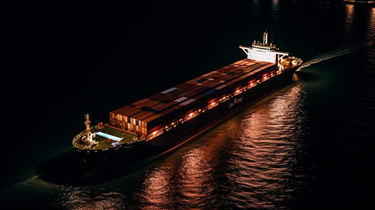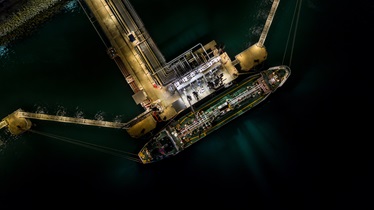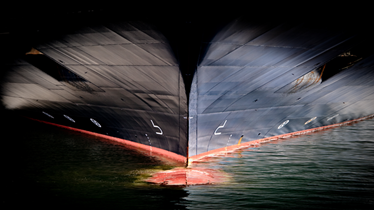Tankers no longer fit the catch-all definition of ‘dark fleet’, even if they share similarities and meet the established criteria.

Published by Lloyd’s List Intelligence, download the annual Risk & Compliance special report for a comprehensive analysis of the rising dark fleet, and an updated view on what measures are being implemented to combat the rise in illicit activity.

Download our whitepaper for a closer look at the challenges of reducing TBML risk – and what compliance professionals need to do to stay ahead of the curve.

Russia’s industrial scale sanctions-evasion programme is growing more complicated and sophisticated, courtesy of an ever expanding “dark fleet” of subterfuge shipping and a shadowy network of brass plate companies and middlemen beyond the reach of Western interventions.

The US, Australia and members of the Group of Seven countries have announced a long-anticipated crackdown on evasive and deceptive shipping practices to breach price caps imposed on Russian oil trades, in their first maritime advisory on sanctions in more than three years.

As the supply chain crisis evolves and new areas of risk emerge, another trend has become apparent: a growing global fleet of moribund vessels, saved from the scrapyard by persistently high freight rates and the illicit oil trade.

Watch Daniel Martin, Sanctions expert and Partner at law firm HFW, as he discusses the volatile sanctions climate and rise in illicit activity affecting the global maritime industry.
.jpg?h=210&w=374&la=en-US&hash=5AC77E2C3616A0DAB8A178F883D40F93)
This Lloyd’s List webinar explores the world of Digitalisation as a Service (DaaS), its strengths and weaknesses, and its potential as a game-changer for decarbonisation and improved operational efficiency.


The Red Sea crisis and tightening sanctions regulations have had a hugely disruptive impact on shipping. Listen to our panel of experts as they help you understand how geopolitical risk affects you, and how you can successfully steer your business through this volatile climate.

Shipping has become collateral damage amid increasing geopolitical tensions. The vulnerability of maritime chokepoints has seen trade lanes rapidly redrawn and maritime security re-prioritised on the political agenda. The management of maritime infrastructure and fleets has been brought into sharp focus. Our maritime experts from Lloyd's List and Janes explore why we can no longer consider maritime security on a reactive and location-specific basis.

This Lloyd’s List webinar will offer the latest view of the evolving sanctions risks for shipping and offer a series of leading expert views on how best to navigate the regulatory recommendations and expectations.
